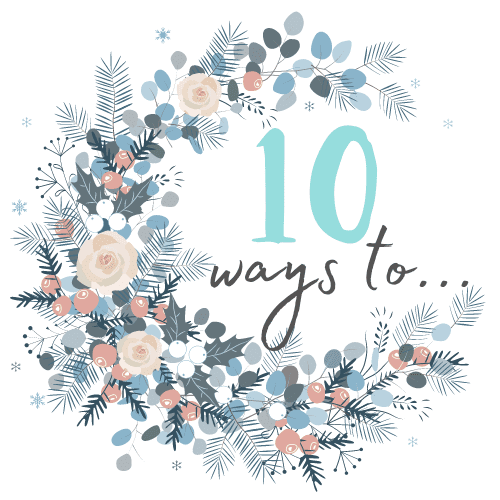This week, in just a matter of days, my youngest daughter starts nursery *sob*. After spending the last 11 months pretty much permanently stuck to my side, she will be making her way off to her first experiences of independence away from Mummy.
Having been through this before almost 3 years ago with Erin, I am fully anticipating tears (from her and me!!). It’s a big change for both of us, and as such, these times are never completely smooth sailing.
How does settling in work?
Most nurseries will suggest that your child has a few settling in sessions before starting permamently to ease the transition, particularly if they are to be attending full time. These are usually planned for the week prior to their first day, and tend to increase in duration to slowly build up the time they are spending in their new environment.
Neve’s first settling in session is just an hour, and I get to stay with her, the idea being that she can get used to the surroundings and the staff whilst I am still there to reassure her.
On the 2nd and third sessions, she stays on her own, for a slightly longer period of time, one covering nap time and the other covering a meal time.
Here are my tips for surviving the settling in sessions:
- Choose a suitable start Date – If you are returning from maternity leave, try and plan your settling in sessions (and indeed your child’s start date) to be a little before you return to work if possible. Whilst from a financial point of view whilst this obviously incurs additional charges, it takes the pressure off and means that if you are going to leave crying your eyes out or overwhelmed with emotion, it is only me who had to see it! The thought of showing my emotions in front of colleagues when I was already lacking in confidence just didn’t sit well with me!! If your child is slightly older and starting pre-school, a few visits to the nursery before hand is also a positive step. The more familiar the surroundings are before their first day the better.
- Tell the staff as much as possible about your child. Does she have a favourite song, does she like a particular game, is there one thing that never fails to make her smile? Helping them understand your child as much as possible and their individual traits and characteristics will help them tailor their care accordingly. In Neve’s case its amazing what a bit of lively dancing can do to cheer her up!
- Crying when you leave is perfectly normal, and to be expected particularly with younger children. In most cases however, they will stop crying shortly after you have left the building and have a wonderful time, whilst leaving you feeling guilt ridden and emotional (that’s what they do best!).
- Don’t prolong the goodbyes or make too much of a fuss, as that can actually make it worse. A quick kiss or cuddle and leaving the room is actually far easier than waving goodbye, lots and lots of cuddles and a slow retreat. I often used to say goodbye and then sneak out when Erin wasn’t looking. Apparently sometimes she didn’t even notice I had gone!
- Take something familiar – If your child has a comforter or blanket that smells of home, you may chose to take this with you. When Erin was very small she had a bunny that she slept with every night. Nursery would pop this in with her at naptime and its amazing how much better she slept.
- Don’t let them see your anxieties – make it exciting! If the child is old enough to understand, chat to them about how exciting nursery is going to be, and how many new friends they are going to make. With younger children like Neve, I will make sure I have a massive smile plastered on my face at drop off, even if my chin is secretly starting to wobble.
- Distraction – These settling in sessions aren’t only strange for your little one, but an unsettling time for you! Keep yourself busy during the settling in sessions to prevent you driving yourself insane. Whilst you need to ensure you are contactable (no going off to the cinema!), why not treat yourself to some me time that you’ve been craving for so long? Paint your nails, face time a friend, have a bath (not necessarily all at the same time, or in that order).
- Phone calls – most nurseries understand that parents will be anxious and are happy for you to ring up as many times as you like during those first weeks to check they’re ok. Remember though that if there was any major concerns they would be contacting you – no news is therefore good news! 🙂
- For older children starting nursery, books are a really good way of helping reinforce the message, particularly ones that talk about nursery or preschool settings. Erin loves the book Maisy Goes to Nursery even now, and it was so similar to her own day at nursery that she could really relate.
- Give it time – don’t expect them to adapt to the new routine overnight – like anything in life, it takes a bit of getting used to. You may have tears for a few weeks as they adjust, but don’t feel guilty, their time at nursery is such a blessing!
Fingers crossed Neve’s sessions will go ok next week. With her ongoing feeding issues and the fact she is still breastfeeding as a result, its not going to be an easy transition, however I am phasing her in VERY slowly, so fingers crossed we will get there.
Before we know it she too will be leaving as a big girl just like her sister!
How did you help your child transition into nursery?








Great tips! I haven’t had to go through this yet as we have been lucky that family have been available but I’m dreading when that day comes around. I definitely need to consider some of these though because I’m the world’s worst for making a fuss and showing my anxiety. #HumpDayLinky
The quick exit is so important. I could guarantee that my daughter would be fine within minutes of me leaving but would cry whenever I dropped her off. Me hanging around just made it worse #HumpDayLinky
Hi, great tips that I’m sure will found helpful. Good luck returning to work #humpdaylinky
Very good tips. Luckily it was very smooth with my son as he absolutely lived it from day one (he essentially thought it’s a soft play or something ) but I’m pretty sure my girl will be different! #humodaylinky
Fab tips, my boys have passed this stage but I remember taking it slowly and building up the alone time until they felt comfortable. Luckily they settling in fairly smoothy X #humpdaylinky
Some good advice. You are right it is inevitable that you will cry after leaving them but yes, much better to wait till they are out of sight x
#HumpDayLinky